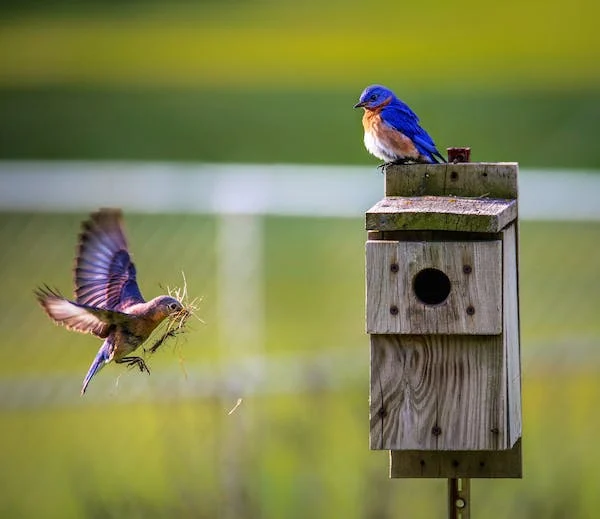A bird’s health depends largely on its environment, and virtually all health issues are a result of a poor diet. Different species of birds may appear easy-going and easy to take care of. However, the reality is that all birds require careful attention, a special diet, stimulation and regular checkups at the veterinarian’s office.
As a disclaimer, virtually all birds can be noisy and relatively destructive — even the little ones! The noise birds make can be a real problem for those who have neighbors within 50 yards of their homes. Take the noise issue into consideration and confirm that your landlord will allow you to have a pet bird. Also, consult a veterinarian specializing in avian care before bringing your feathered companion into your apartment.
As birds age, throughout their lifespan, different issues may occur. This is why it’s essential to stay on top of your bird’s mental and physical health to prevent disease. If you have health-related questions about your pet bird, schedule an online telehealth appointment with one of Vetster’s pet telehealth veterinarians.
If you’re interested in having a bird as a pet, there are some things you should consider before taking the plunge as a bird owner.
Consider this:
- Will you be able to commit to quality time with your bird daily?
- Are you willing to schedule annual checkups?
- Have you consulted with or have access to an avian veterinarian?
- Can you mirror the environment in your apartment to their native climate, i.e., maintain an ideal temperature?
Did you know?
You can extend the lifespan of your bird in captivity if the conditions are ideal. Letting your bird out of the cage between two to six hours per day, engaging with your bird, feeding your bird a healthy diet, engaging and providing your bird with ample stimulation and activity, and scheduling regular checkups are all contributing factors in optimizing your bird’s quality of life.
Female birds can develop health issues due to excessive egg-laying during long daylight hours. It’s essential to give your female pet bird 10-12 hours of quiet, dark, isolated nighttime.
If you are regularly away from your apartment all day, consider investing in a pair of birds. Birds are very social and develop a deeper bond with other birds. If you decide to take in two birds, each bird may be less motivated to interact with you since their social needs are being fulfilled. Taking in any pet can be rewarding and bring joy to your life as well as heartbreak. Before you commit, make sure you’re ready to take on the responsibility of taking care of a bird.
Care tips:
- Routine grooming is required for all birds.
- Ensure your bird has annual exams.
- Consult with your telehealth veterinarian on a proper diet for your bird.
- Birds can be susceptible to toxic environments, including aerosolized toxins.
- Avoid smoking, cleaning solutions, chemicals, and hair products to prevent respiratory damage.
- Overheated non-stick surfaces, such as cooking pans, are a hidden source of deadly toxins for birds.
Ontario’s climate is humid continental, meaning there are large seasonal temperature changes. Ontario gets snow during the winter months, and the summer months can be very humid. Birds are quite adaptable to different temperatures. But always make sure your bird is in a comfortable indoor climate. The rule of thumb is that if you are comfortable, your bird pal is comfortable too.
Now that you are more informed about being a bird owner, here are the ideal birds to have in your apartment:
- Parakeets (Budgerigar)
- Canaries
- Finches (quieter)
- Doves (quieter)
- Parrotlets
Each of these birds may have a different temperament. Your young birds will warble and may also scream. The canaries may sing and their voices won’t travel far enough to annoy your neighbors.
Every bird will exhibit their own personality. Depending on the sex, you can teach a canary, parrotlet and parakeet how to talk. Like a toddler, a bird’s attention span for learning should be limited to 30 seconds to five minutes per session. Always give your bird positive reinforcement. You can coax them to talk with food and plenty of praise. Take a break when you see your bird’s attention drifting away from you. Here’s a great and quick breakdown of how to train your bird to talk.
Remember, the most important thing is to have fun with your pet bird. If you and your bird are engaging and getting adequate mental stimulation, ample time out of the cage, and nourishing food, you are doing an exceptional job as a bird owner.

